SUMMARY
This is AI generated summarization, which may have errors. For context, always refer to the full article.
![[ANALYSIS] The politics of human rights](https://www.rappler.com/tachyon/2020/10/unhrc-october-11-2020.jpg)
When Xing Qu, the newly-appointed assistant director-general (ADG) for communications and information at UNESCO – the world’s educational, scientific, and cultural organization – agreed late last month to reclassify the gruesome 2009 Maguindanao massacre in the Philippines to “ongoing/unresolved,” many in civil society responded with sheer elation.
Just 12 days before, a broad group of organizations and individuals (including family members of the victims) fighting for human rights and press freedom had collectively written the ADG, protesting the agency’s decision earlier that month to laud the Duterte administration for having completely “resolved” all cases relating to the massacre, based solely upon reports by the Department of Foreign Affairs and the Palace. Instead, the group called for due diligence and consultations with concerned stakeholders, arguing that the government was “whitewashing” its human rights record and weaponizing the United Nations (UN) system to further its own agenda.
UNESCO’s response, despite Qu’s nationality and the recent alliance of China and the Philippines, was to look beyond the government’s usual “spin” on supporting free speech – a clear indication that rights advocates outside of government still held moral sway within the sprawling UN system.
But that sense of elation was quickly eclipsed this week when government spinmeisters managed to convince their peers at the UN Human Rights Council (UNHRC) to pass a watered-down resolution on human rights in the Philippines, falling disappointingly short of asking for an independent investigation.
The final version – proposed by Council members (the Philippines, India, and Nepal) and non-members (Hungary, Iceland, Norway, Thailand, and Turkey) – was still a marked improvement over the “zero draft” introduced by the Philippines and Iceland early last month, which had not made, chillingly enough, even a passing mention of human rights. This time, human rights was at least on the agenda for the next two years, undeniably a significant start. Unfortunately, instead of an independent investigation, it called upon UN member states to offer technical cooperation to the Philippine government in an effort to strengthen its capacities to address violations of human rights.
Iceland’s startling departure has to be seen in the light of its earlier tabling of a controversial UN resolution last year, in which it openly denounced human rights abuses in the country, calling for an independent investigation instead. Predictably, this incurred the ire of the President and his talking heads, leading to the churlish (if temporary) blacklisting of Iceland and other supporting countries by the government.
The UNHRC’s latest take must also be understood in the context of the EU Parliament’s recent resolution on the matter, statements by various UN rapporteurs, and a bill in the US Congress seeking to tie US military aid to the human rights record of the Philippines. More importantly, it has to be situated in the context of the damning report by the UN Office of the High Commissioner for Human Rights (OHCHR) on the government’s “war on drugs,” which came out in June of this year in compliance with Iceland’s original resolution.
OHCHR vs UNHRC
Here it is critical that we distinguish between OHCHR, on the one hand, and the UNHRC, on the other. Founded in 1993, the former is the primary body dealing with human rights in the UN Secretariat. Headed by Michelle Bachelet, the former president of Chile, it is composed of technical experts on human rights issues.
In comparison, the UNHRC, founded in 2006, is an intergovernmental body composed of 47 UN member states elected for a period of 3 years. It suffices to say that, even for a UN body, it is unusually political. Indeed, the election of states with a history of abusing human rights has always undermined the Council’s credibility – hence the US withdrawal two years ago, although critics have been quick to point out that the latter has serious human rights issues of its own.
Recent members of the UNHRC include countries that are notorious for human rights violations: until 2020, these include Afghanistan, Congo, and Pakistan; until 2021, the Philippines is joined by India and Somalia; and, until 2022, Sudan and Venezuela. Adding to this rogue’s gallery are aspiring countries like China, Russia, and Saudi Arabia (with alarming domestic and international records of their own). As one international advocate recently put it: “The UNHRC has become a kind of peer-review system, where countries do not denounce one another and instead express supportive notes of concern,” adding that this is a natural occurrence, in view of such rising global threats as populism and the COVID-19 pandemic.
China’s ‘rights-free’ approach
In addition to worsening income inequality, I would add other shifts, such as Donald Trump, Brexit, and growing unilateralism and xenophobia as a response to increasing global migration. More importantly, we have been witnessing the emergence of powers like China on the global stage for some time now. From 2019-21, China has been the second largest contributor to the United Nations, outflanked only by the United States. Of the 19 existing UN agencies, 5 are currently headed by a Chinese national.
Beijing has wielded its considerable clout at the UN by blocking measures to protect victims of persecution all over the world. Human Rights Watch (HRW) lists Syrian civilians facing airstrikes by Russian and Syrian planes; Rohingya Muslims ethnically cleansed and abused by the Myanmar army; Yemeni civilians under bombardment and blockade by the Saudi-led coalition; and the Venezuelan people suffering destitution due to the mismanagement and corruption of Maduro’s government. China has also opposed other UNHRC resolutions involving human rights in Iran, Burundi, Nicaragua, Eritrea, Belarus, and the Philippines because these countries have refused to accept the allegations leveled against them.
This hands-off approach explicitly enunciates China’s own position: other UN member-states, in turn, should have no say in its domestic or overseas human rights record, whether it relates to Uighur Muslim and other minorities in the country, on the one hand, or in outside countries/regions like Tibet, Hong Kong, Southeast Asia, and Africa, on the other. In the end, its global economic agenda – in which it urges “mutually beneficial” or “win-win” cooperation, which is framed as a voluntary rather than legal obligation – has often come to trump international human rights altogether.
For example, its Belt and Road Initiative (BRI), which leads to a typical debt trap for recipient countries, also has few measures for protecting heritage and the environment. More importantly, it significantly bolsters authoritarian governments, regional blocs and international agencies. For example, UN Secretary-General António Guterres has publicly praised the BRI, even as he continues to avoid calling China into account for its widely-documented abuses in Xinjiang. The same can be said of leaders like Pakistan’s Imran Khan, a member of the powerful Organization of Islamic Cooperation, which is consistent in its support of Kashmiri Muslims and Palestinians, but has little to say about its Uighur brothers and sisters.
Chinese “exceptionalism,” of course, like American exceptionalism before it, has led to a dizzying array of double standards. If the UN encourages debates on human rights violations by Israel, Egypt, Saudi Arabia, Russia, Myanmar, Venezuela, the US, and the Philippines, why the obvious resistance to openly scrutinize China’s own record? The good news is that some nations have recently stepped up, despite their initial reluctance: just a few days ago, 39 (mostly European) countries supported a German-led statement denouncing China’s record. But the latter’s allies retaliated quickly: Pakistan, on behalf of 55 countries, opposed any interference in “China’s internal affairs” in relation to Hong Kong. Cuba, on behalf of 45 states, supported China’s efforts to deradicalize and counter terrorism in Xinjiang.
The Philippines
In what can occasionally be a deadly numbers game, developing countries – forever under the yoke of more powerful governments – become trapped in what diplomats like to call a series of quid pro quos. So, while our voting record at the UN is hardly surprising, it does demonstrate the embarrassing degree to which this administration has been willing to kowtow to China. At the UNHRC last year, the Philippines refused to denounce human rights violations in Yemen, Myanmar, Burundi, Syria, and Venezuela. It chose, in addition, to abstain on the death penalty.
As for this year’s UNHRC resolution on the Philippines, it calls not only for international support of the country, but also for Philippine government agencies to work together, particularly with respect to data-sharing. But how, one might ask, is this to be operationalized if the Philippine National Police (PNP) consistently refuses to cooperate with the Commission on Human Rights on investigations into extrajudicial killings, despite the repeated promises of police officials?
It should be remembered that a practice of cooperation between law enforcement and human rights agencies was firmly established in the post-Marcos period. Regrettably, a senior government official observes that this long-standing relationship has been radically overturned by the Duterte administration’s sudden shift to a kind of default non-cooperation between them. Instead, access to pertinent information has been on a case-to-case basis, depending upon securing “clearances” by court order or from higher-ups in the chain-of-command. While this shift is not writ in stone, one has only to look at statements made by the President in his 2017 State of the Nation Address, followed by those by then PNP Chief and now Senator de la Rosa, among other officials.
The UN, moving forward
Other questions linger: What does one make of the striking turnaround of Iceland in just one year? The same official attributes this shift to the DFA’s recent “charm offensive” towards UN member states like Iceland, following Secretary Locsin’s petulant outbursts against supporting governments last year, which arguably had a negative impact on aid and trade. That said, it should also be added that it was still Iceland’s tempering influence that kept human rights on the Council agenda in the first place.
Still, one wonders: What is the point and value of a nation-state’s resolution on its very own human rights record? An EU diplomat in the Philippines recently confided that, interestingly enough, it was the OHCHR itself that had recommended that Iceland work with the Philippines, even after having openly criticized it last year. So: Is this the current nature of conflict resolution in the UNHRC, in which substantive issues are bypassed altogether?
Finally, does all this bear the indelible mark of China’s rising influence in the UN system, where “truth,” particularly with respect to human rights, is ultimately about what pleases? To be sure, if Trump wins this November, China will continue to inhabit the power vacuum the US has left at the UN. If Biden wins, however, there is the promise of greater multilateral cooperation that could, in turn, help neutralize great power expansionism and forge a more credible human rights architecture on the world stage. – Rappler.com
Lila Ramos Shahani is the former secretary-general of the Philippine National Commission for UNESCO at the Department of Foreign Affairs. She has served the Philippine government for 13 years under 3 presidential administrations and has been an adviser for UNICEF and UNDP in New York.
Add a comment
How does this make you feel?

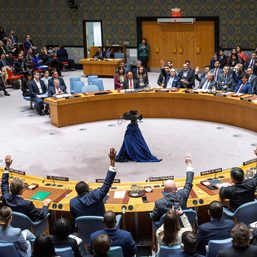
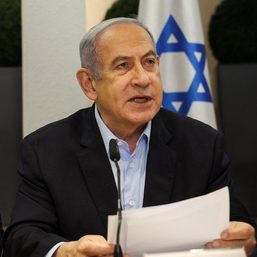
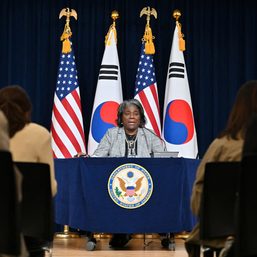
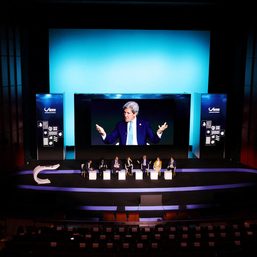
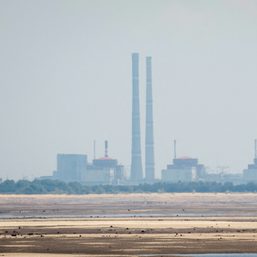
There are no comments yet. Add your comment to start the conversation.